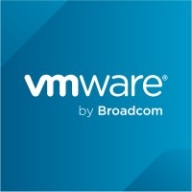

VMware vSAN and HPE Hyper Converged compete in the hyper-converged infrastructure market. HPE Hyper Converged seems to have the upper hand with its comprehensive feature set and superior customer support.
Features: VMware vSAN offers robust integration with VMware environments, high performance, and simple management. HPE Hyper Converged provides greater scalability, advanced data protection, and a more extensive array of functionalities.
Room for Improvement: VMware vSAN needs more competitive pricing, simplified complex features, and better support for non-VMware environments. HPE Hyper Converged could enhance support services, improve cost efficiency, and simplify licensing.
Ease of Deployment and Customer Service: VMware vSAN features straightforward deployment within VMware environments and reliable customer service. HPE Hyper Converged offers even simpler deployment processes and proactive customer support.
Pricing and ROI: VMware vSAN has competitive initial setup costs and satisfactory ROI. HPE Hyper Converged has higher setup costs but delivers greater long-term value and ROI.
| Product | Market Share (%) |
|---|---|
| VMware vSAN | 11.4% |
| HPE Hyper Converged | 3.0% |
| Other | 85.6% |


| Company Size | Count |
|---|---|
| Small Business | 18 |
| Midsize Enterprise | 6 |
| Large Enterprise | 18 |
| Company Size | Count |
|---|---|
| Small Business | 100 |
| Midsize Enterprise | 58 |
| Large Enterprise | 129 |
HPE Hyper Converged solutions combine intuitive software with the reliability of a world class platform to deliver cloud-like simplicity to your business.
Now, IT can become an internal service provider to end-users by quickly delivering the resources they need for application development and consumption. With HPE Hyper Converged systems companies can operate with cloud efficiency to simplify IT operations with one comprehensive control panel to deploy, monitor, analyze and update – with a single generalist; consume with cloud flexibility to deliver a cloud-like experience, with multi-tenant workspaces that eliminate stranded resources and flexes on demand; and deploy at cloud speed to empower developers and lines-of-business with a self-service portal that can instantly compose and recompose VMs in minutes. Built-in enterprise grade features, such as performance and resiliency enable HPE Hyper Converged systems to easily handle a wide variety of virtualized workloads, including general purpose virtualization, virtual desktop infrastructure (VDI), and cloud.
VMware vSAN is a software-defined storage product that is used in collaboration with VMware ESXi hypervisor and that provisions and manages storage based on policies, regardless of the underlying hardware. The solution enables you to prime your business for growth through its seamless evolution (it is integrated with vSphere and requires no new tools), its flexibility, and its multi-cloud capabilities. As an industry-leading software, VMware vSAN provides high levels of performance with minimal impact on CPU and memory.
VMware vSAN Features
VMware vSAN has many valuable key features. Some of the most useful ones include:
VMware vSAN Benefits
There are many benefits to implementing VMware vSAN. Some of the biggest advantages the solution offers include:
Reviews from Real Users
Below are some reviews and helpful feedback written by PeerSpot users currently using the VMware vSAN solution.
PeerSpot user Yves S., CEO, Cloud Evangelist at Comdivision Consulting GmbH, says, “vSAN gives us a lot of advantages when we need to expand resources. We have an overall larger host infrastructure, and we split that up for specific customer test and use cases. In that specific scenario, we can easily add more hosts or reduce the number of hosts in the environment.”
A reviewer who works in Infrastructure Security explains, “The ease of use is great. The initial setup and upgrade process was pretty straightforward. And, technical support is great.”
Laurent N., Director at Softlogic, comments, "The feature that I have found most valuable is that it is easy to deploy. It is easy to create and delete virtual servers. It is easy to create the load balancing and the clustering."
We monitor all HCI reviews to prevent fraudulent reviews and keep review quality high. We do not post reviews by company employees or direct competitors. We validate each review for authenticity via cross-reference with LinkedIn, and personal follow-up with the reviewer when necessary.